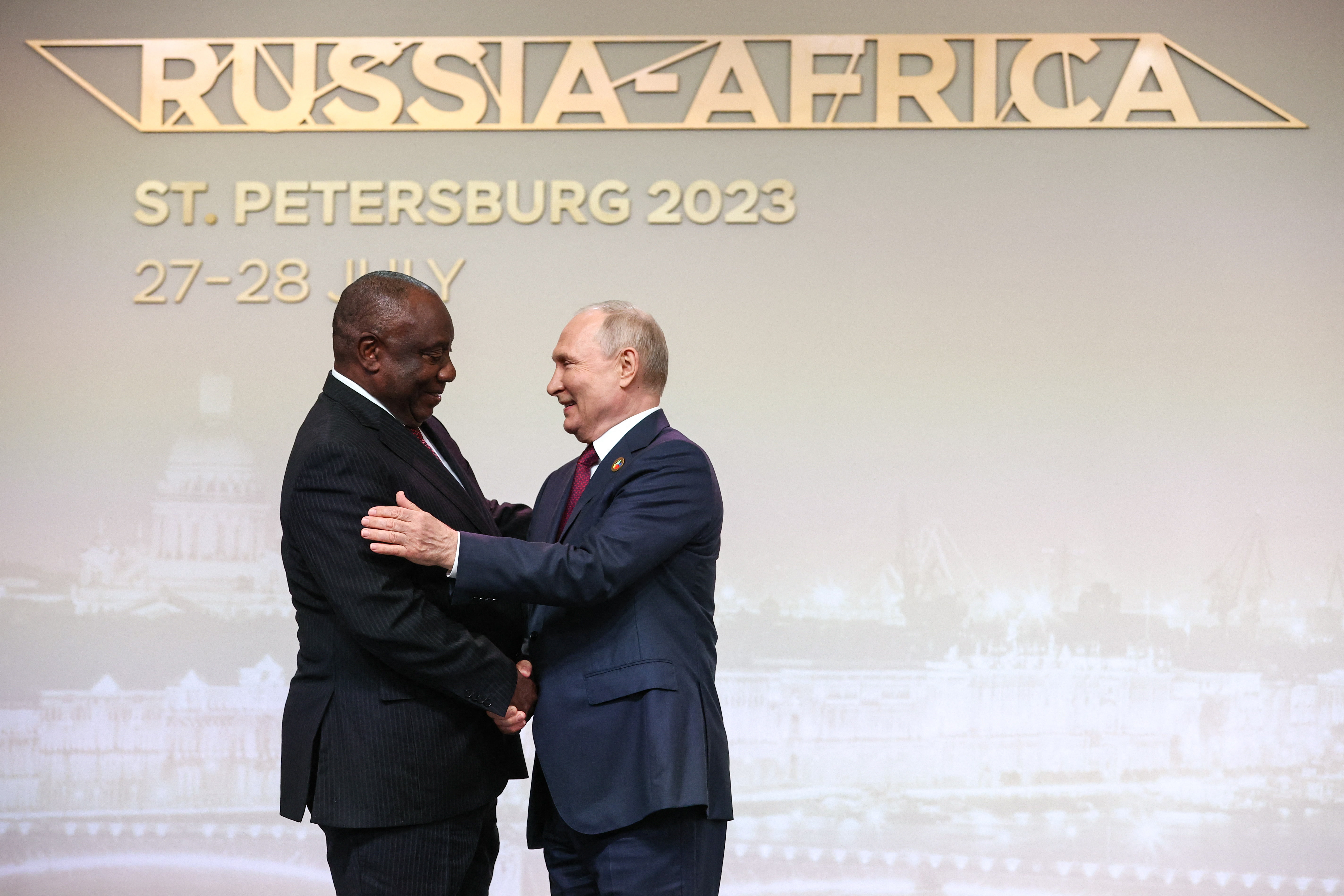
Russia is genuinely interested in deepening multifaceted trade, investment and humanitarian ties with Africa, which would meet the needs of all countries, Russian President Vladimir Putin said Thursday, at the plenary session of the Russia-Africa Economic and Humanitarian Forum within the framework of the second Russia-Africa Summit in Saint Petersburg, according to Xinhua.
The Russian leader further stressed the importance of uninterrupted food supplies to African countries. "Russia exported 11.5 million tons of grain to Africa in 2022, and almost 10 million tons in the first six months of this year alone," Putin said, adding that these deliveries were possible despite the sanctions imposed against Moscow.
Putin said Russia will continue supplying grain to African nations. "In the next three to four months, we will be ready to provide, free of charge, a supply of 25,000-50,000 tonnes of grain each to Burkina Faso, Zimbabwe, Mali, Somalia, the Central African Republic and Eritrea," Putin said, adding that delivery would also be free.
Vladimir Putin on Friday said Russia has written off debts of African states worth 23 billion USD, Anadolu Agency reported. Putin said 90 per cent of debts of African countries were settled, with no more "direct" debts but some financial obligations. Putin noted that Russia's attention to Africa is steadily growing, which is evident in plans to increase diplomatic presence on the continent. "This is a real practical step to significantly intensify work with African countries in the political, business, humanitarian, cultural and tourism spheres," he stressed.
